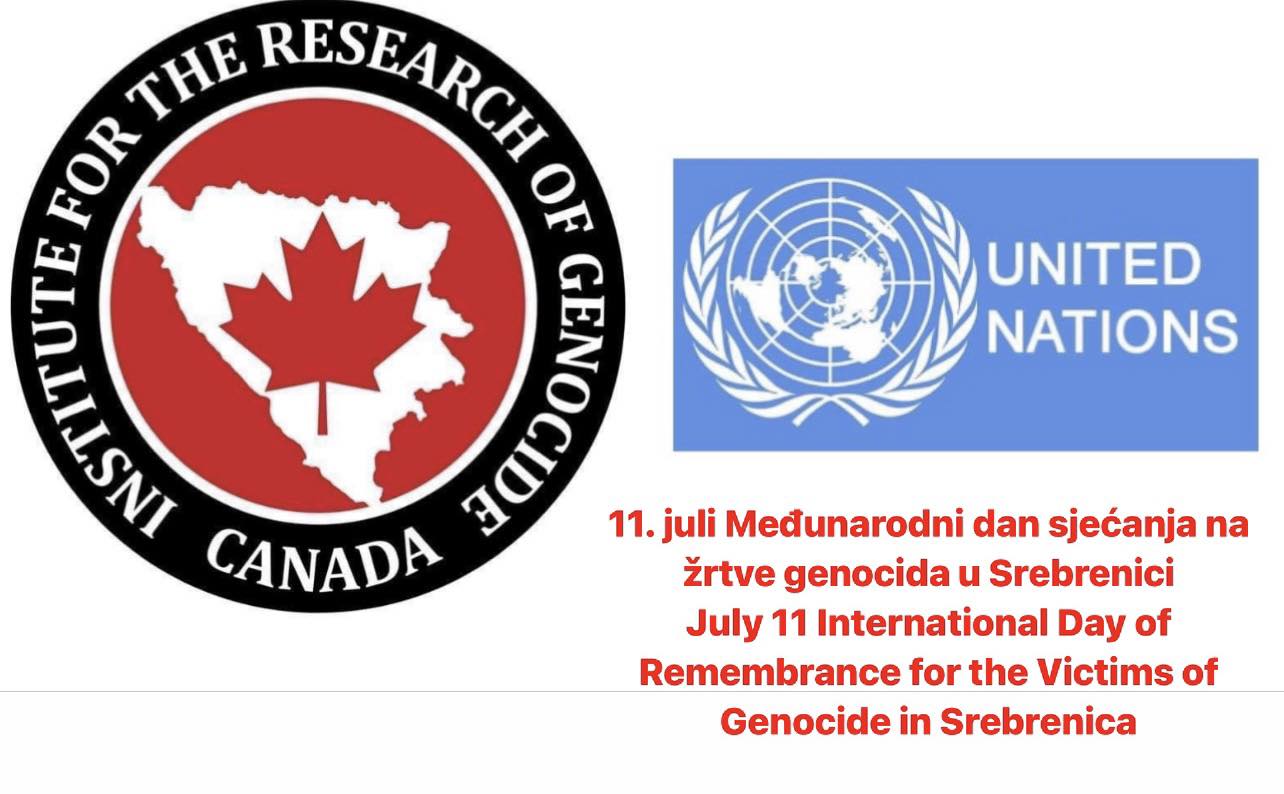IGC asks the UN General Assembly to declare July 11 as the International Day of Remembrance for the Victims of the Srebrenica Genocide.
September 09, 2023
His Excellency
Mr. António Guterres Secretary-General United Nations
1 United Nations Plaza New York, NY 10017
His Excellency
Mr. Abdulla Shahid
President of the 76th Session of the United Nations General Assembly
His Excellency
Ambassador Mr. Ferit Hoxha
President of the United Nations Security Council
His Excellency
Mr. Robert Rae
Ambassador and Permanent Representative of Canada to the United Nations in New York
His Excellency
Dr. Zlatko Lagumdzija,
Ambassador and Permanent Representative of Bosnia and Herzegovina to the United Nations in New York
Your Excellencies,
It is high time that July 11 is recognized as the International Day of Remembrance for the Vic- tims of the Srebrenica Genocide.
The genocide in Srebrenica, in which 8,372 Bosniaks, mostly men and boys, were brutally killed, remains one of the darkest chapters in the history of Europe and the world.
The fact that genocide was committed in Srebrenica is not a matter of opinion; it is a historical fact, legally established by the International Criminal Tribunal for the former Yugoslavia and later by the International Court of Justice and other national courts.
Unfortunately, many people do not know what happened at Srebrenica, and many who know deny it. Denial is the biggest insult to the victims of genocide and a severe threat to truth, justice, a culture of memory, stability, and peace in the region and beyond.
The continuous and growing culture of genocide denial in Srebrenica must be confronted and eradicated.
Political leaders in the region, especially political leaders of the Republic of Serbia and the Bos- nian administrative area of Republika Srpska, bear the primary responsibility to confront the de- nial of genocide. Instead of promoting the culture of truth, reconciliation, justice, and empathy for victims, they promulgate hatred and denial of the Srebrenica genocide, as well as legal facts.
Teaching about genocide and preserving the memory of the victims is a crucial first step we must take. The international expert team of the Canadian Genocide Research Institute currently in- cludes more than 200 eminent genocide researchers, human rights and freedom activists, as well as academics and cultural leaders. We preserve the memory and seek justice for the victims of the Genocide in Srebrenica. However, we can’t do it alone.
Faced with widespread denial of genocide, it is high time that the international community, espe- cially the United Nations, recognize July 11 as the official International Day of Remembrance for the Victims of the Srebrenica Genocide.
Proclaiming the International Day of Remembrance for the Victims of the Srebrenica Genocide would show that the United Nations and the international community stand on the side of justice and truth and in solidarity with the victims and survivors of the Srebrenica Genocide. This is the
minimum we can ask for and the minimum we expect from the international community. We ask you to stand with us to honour the dignity of victims and survivors of the Srebrenica genocide and help us confront the hatred of genocide denial. By doing so, you will help prevent future genocides that may happen to other minorities in our increasingly polarized and violence-ridden world.
The Institute for the Research of Genocide Canada asks the Canadian ambassador to the United Nations to support the proposal to establish the International Day of Remembrance for the Vic- tims of the Srebrenica Genocide at this year’s session of the General Assembly.
Canada has already (1) recognized the judgments of international courts on the Genocide in Sre- brenica, (2) proclaimed July 11 as the Day of Remembrance for the Victims of Genocide, (3) promoted truth and justice about genocide, (4) criminally sanctioned the perpetrators of geno- cide, and (5) and paid tribute and piety to the victims of genocide.
We’re thankful to Canada for confronting the culture of hatred associated with the denial of gen- ocide. Our common goal of peace and commitment to human rights remains steadfast. We expect Canada to continue standing for human rights and use diplomacy to end hate-inspired denial of the Bosnian genocide.
The Institute for Research of Genocide Canada also urges the ambassador of Bosnia and Herze- govina to the United Nations to undertake increased activities to realize this crucial task.
Our dear friend Menachem Rosensaft, general counsel emeritus of the World Jewish Congress, recently visited the Srebrenica Genocide Memorial in Potočari. In his speech, he confronted the denial and stated the following:
“Today and tomorrow, we who were not there stand in full solidarity with the survivors and their families. Let us dedicate ourselves together to permanently enshrining the genocide that occurred at Srebrenica and Potočari in the annals of humankind, for the sake of remembrance, of course, but also, equally importantly, as a warning.
Dr. Emir Ramić
President of the Institute for Research of Genocide Canada

